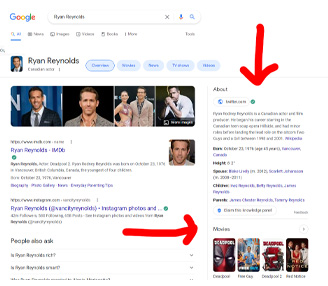
Before we start, let’s talk about what “Topical Authority" is.
Topical Authority Definition
Topical Authority is the act of helping search engines (Such as Google and Bing) associate your website with certain topics that are closely related to what the website is about or what services they offer. It is yet another form of search engine optimization.
Topical Authority (Sometimes also known as “Topic Clusters") can be closely related to the overall business goals and objectives. By fine-tuning your topics on your blog or throughout your website, you can really gain an advantage over competitors who spend no time on it.
Why Topical Authority Efforts Should be Considered?
- Google is a search engine that works with what’s called “semantic associations."
- Before your website could be ranked for the type of industry you’re in, Google has to be able to associate certain topics with your website content.
- Finally, many of your competitors are already heavily invested in greatly thought-out content writing services, for the sake of Topical Authority domination.
The Stages of Topical Authority Discovery by Search Engines
How do search engines become aware of your Topical Authority efforts? It happens in 4 stages:
- Discovering: Your content needs to be discovered by search engines. A great tool to achieving this is by submitting your content right away to Google Search Console. There is now a tool called “Index Now" which sends signals to Google immediately after publishing your new content.
- Web Crawl: Once your content is discovered, Google (or any search engine) will begin to “crawl" through the content, to learn more about how to “index" your website properly.
- Indexing: Now that Google understands what your topics are about, they then begin to “index" your content appropriately in their search results.
- Ranking: Based on how competitive your market or industry is (or how well your competitor’s SEO efforts are), they will place your website within the search results accordingly.
Evolution of Google Algorithms
-

Mar, 2012
Knowledge Graph
In 2012, Google launched what's known as a "knowledge Graph." If you ever did a direct search for a company, you may have noticed a "panel" on the right hand side of the Google search result for that company. It is filled in with company information such as the contact info, photos, reviews, etc... All this is manipulated via Google My Business.
-

May, 2015
RankBrain
In 2015, Google announced a new algorithm that acts as a machine learning system that is used to better match search queries with their search results. They call it RankBrain.
-

Aug, 2018
Neural Matching
In 2018, Google introduced "Neural Matching" which is another algorithm to make better sense of concepts, and how people are now asking for things when they do searches. For instance, instead of typing in a question, they hit the microphone icon and ask their questions verbally.
-

Jun, 2019
BERT
In 2019, Google introduced "BERT," a neural network-based technique for natural language processing pre-training, as a way to even better understand implicit and explicit language.


How to Build Topical Authority?
Internally
Involves any proactive activity that happens on the website itself, where we have the most control.
Externally
Include such things as:
- Unbiased backlinking that come from relevant sources, relevant pages. The best way of achieving this is to have content that is so informative and well produced, that other websites want to share it with their base.
Horizontally
Try to cover different topics without diving in too deep into any one specifically.
Example: “Marketing" being the main topic
- content marketing
- email marketing
- affiliate marketing
- social media marketing
- B2B marketing
Vertically
Try to cover as many relevant “sub-topics" as we can for specific topics we’re interested in. For al the horizontals examples above, for instance, to break each one down even further. When you think about it, there are so many topics to cover!
Example: “Content Marketing" (taken from above) being the main topic:
- what is content marketing
- content marketing strategy
- content marketing examples
What is the Best Strategy for Topic Authority
Unless you have all the time in the world, or have a limitless spending budget, you can start to see the difficulty of trying to capture each topic and subtopic per category.
Your best approach, in this instance is to start with one of your most important categories, and stick with that one, until you have completely covered the topic.
Don't forget to make sure your website pages have basic SEO implementation, just to be sure your efforts don't go unnoticed.
How Can I tell if What I'm Doing is Working?
A good indication that you are truly becoming an authority for the topic would be when other websites start linking to your articles. How do you know if that is happening? With the use of good SEO tools or an SEO agency such as webstuffguy.com to help keep track.

